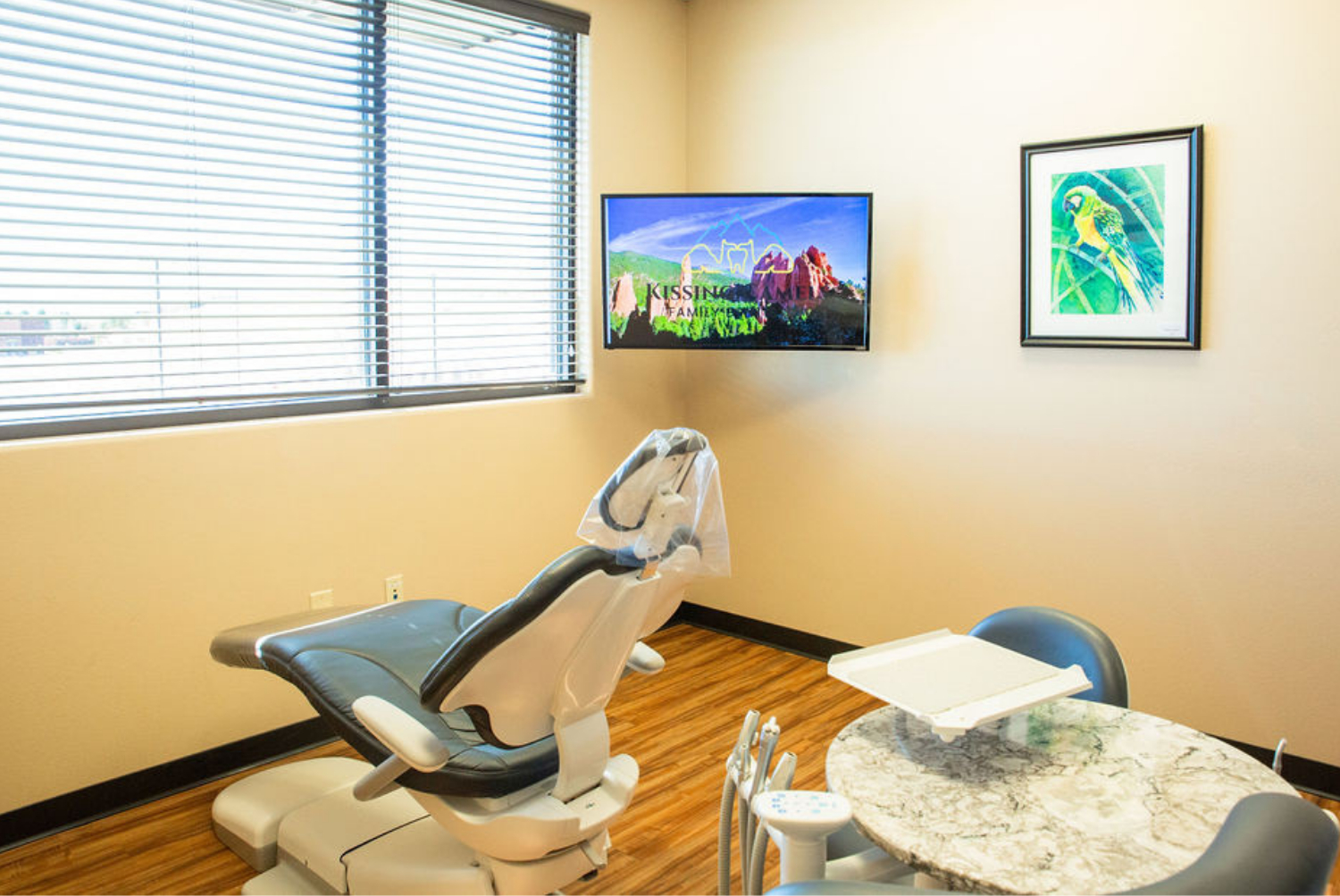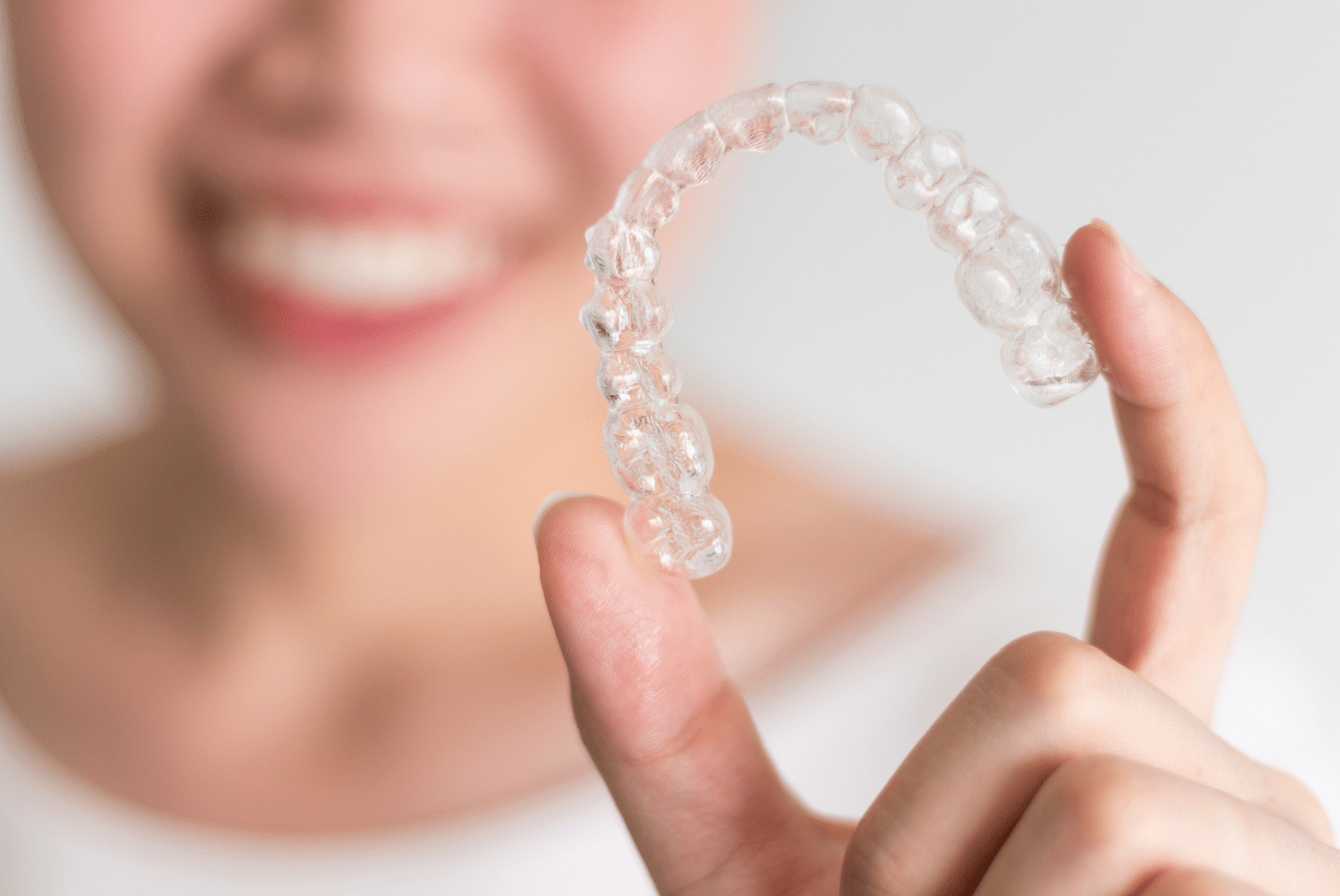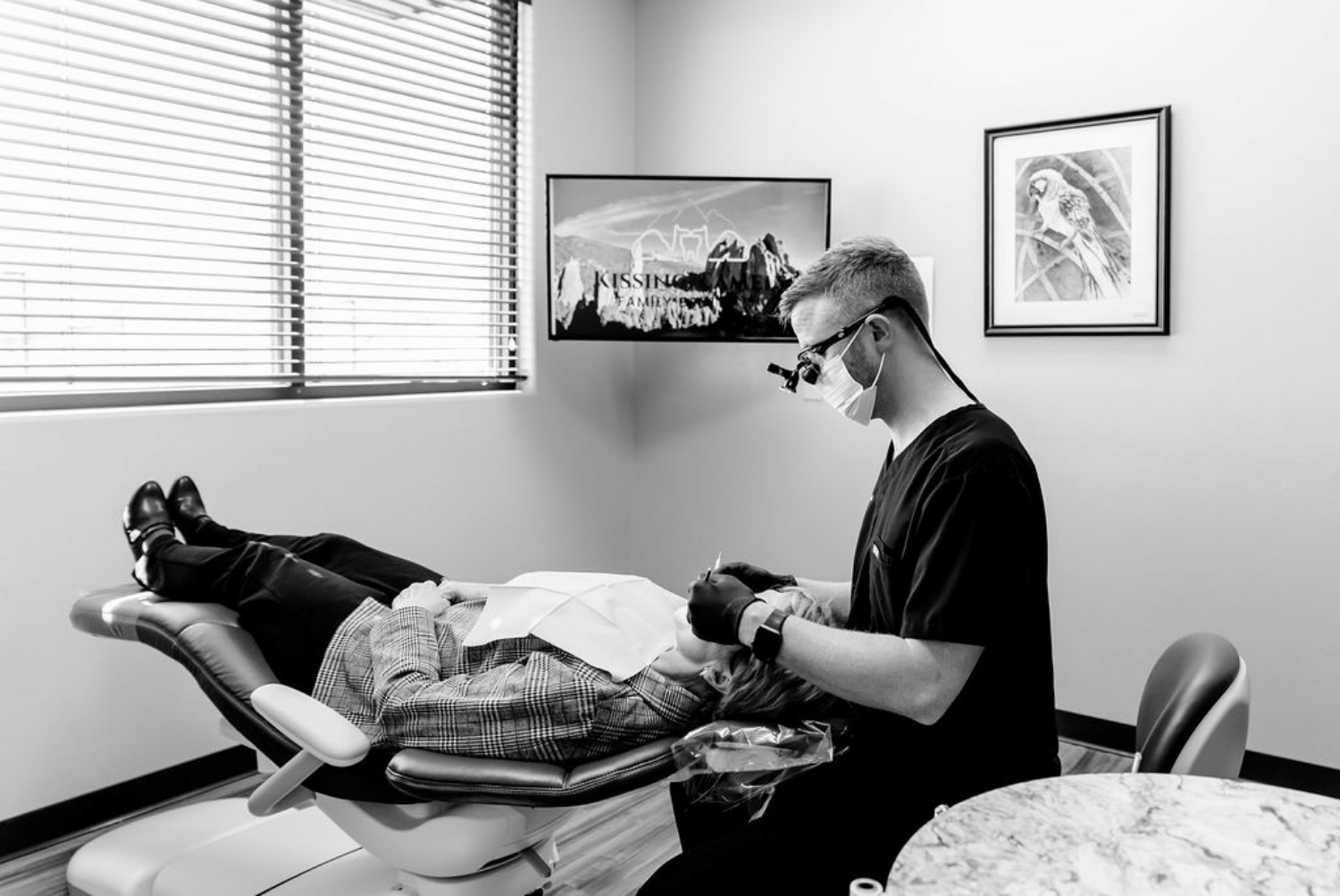It’s that time of year again, and we’re thinking about setting new goals for the next year like we do every year. We’ve all tried it, and we’ve all had varying degrees of success. This year, Kissing Camels Family Dentistry, Colorado Springs dentist, has put up a list that you will want to treasure. So keep that lovely and cheerful grin on your face by reading these 10 smile goals for the new year from cosmetic dentist 80907!
Smile Goals for the New Year
Oral hygiene is vital for general health, and oral health problems may harm your overall health. And, of course, proper oral hygiene is only achievable if you follow a healthy oral hygiene practice. The following list from the best dentist in Colorado Springs, explains ten critical modifications you may make to your regular dental care regimen to gain significant benefits. Congratulations if you’ve already started following them. Dr. Boals, CO Springs family dentist, urges you to start now!
#1 Brush Regularly
Brushing your teeth regularly is number one on the list of smile resolutions. While everyone understands the necessity of cleaning their teeth, knowing when, how frequently, and for how long is crucial. Therefore, brush your teeth after each meal if at all feasible.
If brushing your teeth after each meal is not feasible, thoroughly rinse your mouth to ensure that no food particles remain in your mouth. Bacteria may develop on the leftover food particles, causing foul breath and other dental health concerns such as cavities. Another facet of brushing is the length of time you brush. The most vital component to consider is how you brush and how long you brush for. It would be best if you did not rush brushing, and it should take at least 2 minutes to finish.
#2: Invest in High-Quality Items
We’re all aware of the many sorts, flavors, and colors of toothpaste on the market. Most of them also have that one component that sets them apart from the competition. The same may be said about toothbrushes. Electric, battery-operated, disposable, natural, and other types are available in various sizes and styles. Now it’s up to you to locate exactly what you’re looking for – something that will meet your oral hygiene needs. While much of what is available on the market will work for you, speaking with your dentist may be beneficial. Your dentist is familiar with your oral health situation and can propose the best option for your dental care.
#3: It’s All About the Food
Your diet has an influence on your oral health and is crucial to maintaining your teeth healthy and your smile looking great. Certain foods may erode the enamel of your teeth and cause cavities. High-sugar foods raise the risk of developing new cavities and exacerbate existing ones. Carbonated beverages, such as soda, may potentially harm your teeth. Coffee and tea, for example, may change the color of your teeth and make them seem less dazzling. It’s worth noting that some of these foods may potentially have negative health consequences. While we don’t recommend fully avoiding certain foods, limiting your intake will have long-term health advantages.
#4: Maintaining A Healthy Lifestyle Pays Off in the Long Term
Certain behaviors might have a detrimental influence on your dental and general health. For example, one of the primary causes of mouth cancer is smoking and chewing tobacco. As you are surely aware, these practices may lead to a variety of health problems. Stay away from tobacco and smoking products, as any medical practitioner would suggest. The darkening of teeth is one of the less damaging outcomes of these practices. These stains may be removed, and the brightness of your smile restored thanks to advances in teeth whitening treatments like Zoom.
#5: Floss Like You’re Concerned
Brushing your teeth cleans the surface of your teeth. Floss is an important tool for keeping your teeth and gums healthy, according to the American Dental Association (ADA). Cleaning between teeth eliminates plaque from regions that a toothbrush can’t reach, which may contribute to cavities or gum disease. Food particles lodged between the teeth and gums are impossible to remove with a toothbrush. This is when floss comes in handy.
When it comes to keeping your teeth and gums healthy, flossing is just as essential as brushing.
Food particles caught between teeth may aid bacteria development, resulting in gum disease, plaque accumulation, and poor smell. So when it comes to flossing, there should be no question. Flossing is a good way to keep your teeth and gums healthy. And your grin remains unblemished.
#6: Include Mouthwash Daily
Mouthwash is an excellent supplement to your everyday brushing regimen. There are many different types on the market, and your dentist can help you pick one that will work best for you based on your current dental health. Mouthwash can brighten your smile while also killing germs that may cause foul breath. Mouthwash can reach every nook and cranny of the mouth, flushing away any residual food particles and leaving you with a clean, fresh sensation.
#7: Stay Hydrated
Drinking water to stay hydrated provides a variety of health advantages. Keeping your body hydrated benefits your skin, eliminates waste, keeps you cool, improves digestion, and the list goes on and on. When it comes to oral health, water aids in the formation of saliva as well as the removal of food particles from the mouth after a meal.
Regularly drinking water might help you prevent harmful seeking alternatives such as soda or other unhealthy foods. Overall, being hydrated improves your health and appearance.
#8: Get Your Routine Cleanings
Dr. Beth Herko, dentist New Providence NJ, states cleaning your teeth on a regular basis may help you avoid dental problems and prevent current ones from worsening or spreading. Treating any oral health problem early on will be a far less painful, quicker, and less costly experience. As oral health problems worsen, they may become more painful and possibly result in the loss of permanent tooth structure. Even if you follow a solid daily oral care practice, having your teeth cleaned by a professional on a regular basis may help keep your teeth as healthy and white as they should be. While each person’s necessary number of visits per year will vary, your dentist may work with you to determine the appropriate frequency.
#9: Be Your Own Expert
It’s a good idea to have a clear awareness of your dental health situation. Examine your mouth routinely as part of your daily health care regimen, and if you see anything unusual, contact your dentist.
#10: Maintain Your Dental Appointments
The frequency with which one should see the dentist is determined by one’s dental health and general health history. Once your dentist is aware of your oral health condition and oral care needs, he or she will be able to advise you on how many visits per year would be optimal. Also, take advantage of these opportunities to learn more about your dental health. Finally, ask your dentist any questions you have, and he or she will gladly answer them.
Why Choose Kissing Camels Family Dentistry?
Kissing Camels Family Dentistry is a place where every smile matters. We are a new Colorado Springs family and cosmetic dentistry practice with skilled staff, cutting-edge equipment, a contemporary and convenient building, and all the dental services you and your family need. We are conveniently located in Colorado Springs at the junction of University Blvd. We adopt a tailored approach by providing attentive care in a calm and relaxing atmosphere to our patients. We at Kissing Camels Family Dentistry are grateful for the chance to be a part of your oral health journey.
You are always invited to come in for a free consultation at our office, whether you are searching for a basic dental check, improving your smile, or attempting to solve a lingering tooth pain. We provide a comprehensive range of services to meet all of your oral health and aesthetic needs. Contact us today!











